Leadership Team
In addition to treating patients and performing research, scores of our faculty and staff dedicate time to educating and mentoring trainees. Our faculty strive to support them as they meet the personal and professional challenges and rewards of a career in medicine. While nearly all of our faculty devote time to supporting trainees, we have profiled our leadership team below and to the left.
Education Program Leadership
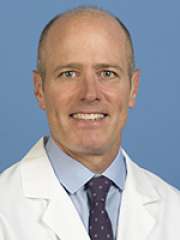
S. Thomas Carmichael, MD, PhD
UCLA Neurology Department Chair
S. Thomas Carmichael is a neurologist and neuroscientist in the Departments of Neurology and of Neurobiology at the David Geffen School of Medicine at UCLA. Dr. Carmichael is Professor Chair of the Department of Neurology, co-Director of the UCLA Broad Stem Cell Center and co-Director of the Regenerative Medicine Theme in the David Geffen School of Medicine. He has active laboratory and clinical interests in stroke and neurorehabilitation and how the brain repairs from injury. He received his MD and PhD degrees from Washington University School of Medicine in 1993 and 1994, and completed a Neurology residency at Washington University School of Medicine, serving as Chief Resident. Dr. Carmichael was a Howard Hughes Medical Institute postdoctoral fellow at UCLA from 1998-2001. He has been on the UCLA faculty since 2001. Dr. Carmichael’s laboratory studies the molecular and cellular mechanisms of neural repair after stroke and other forms of brain injury. This research focuses on the processes of axonal sprouting and neural stem cell and progenitor responses after stroke, and on neural stem cell transplantation. Dr. Carmichael is an attending physician on the Neurorehabilitation and Stroke clinical services at UCLA.
Dr. Carmichael has published important papers on stroke recovery that have defined mechanisms of plasticity and repair. These include the fact that the stroke produces stunned circuits that limit recovery, but can be restored to normal functioning with newly applied experimental drugs. His work has identified a novel brain “growth program” that is activated by stroke and leads to the formation of new connections. These studies have also identified how this growth program changes with age, and how specific molecules in the aged brain block the formation of new connections and of recovery. This and other work has led to new directions in stroke therapeutics, including therapies with stem cell and tissue engineering applications. Dr. Carmichael is in the midst of stroke stem cell development applications with the FDA and with biotechnology companies.
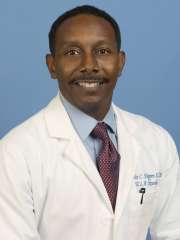
Charles C. Flippen II, MD
UCLA Neurology Vice Chair of Education
[email protected]
Dr. Charles C. Flippen II is the Richard D. and Ruth P. Walter Professor of Neurology faculty member of UCLA Goldberg Migraine Program at the Ronald Reagan UCLA Medical Center, Vice Chair for Education in the Department of Neurology and associate dean of the Center for Continuous Professional Development at the David Geffen School of Medicine at UCLA (DGSOM).
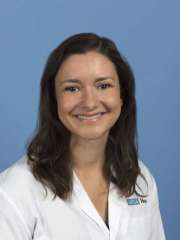
Adrienne Keener, MD
UCLA Neurology Residency Program Director
Dr. Keener is a neurologist whose primary clinical focus is movement disorders. Currently, she is an Assistant Clinical Professor at the UCLA School of Medicine, Department of Neurology and a member of the Movement Disorders Clinic. An honors graduate of University of California, San Diego, with a major in Cognitive Science, and an Alpha Omega Alpha graduate of the University of Southern California Keck School of Medicine. Dr. Keener was an intern in Medicine at Olive View-UCLA Medical Center, and a resident in Neurology in the Department of Neurology at UCLA where she served as Chief Resident. In 2016, she joined the faculty at UCLA where she participates in research and clinical care both at the UCLA Movement Disorders Clinic and at the West LA VA PADRECC (Parkinson’s Disease Research, Education, and Clinical Center). Her research interests include the epidemiology of Parkinson’s Disease, and interdisciplinary treatment approaches for movement disorders. Dr. Keener is also interested in medical education, specifically in the practice of Narrative Medicine and developing physician wellness for trainees. She joined the residency program at UCLA as the Associate Program Director in 2016.
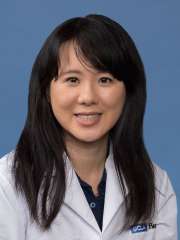
Katherine A. Fu, MD
UCLA Neurology Associate Residency Program Director
Dr. Katherine Fu is currently an Assistant Professor in the Department of Neurology, Movement Disorders Program at the University of California, Los Angeles (UCLA). She graduated with degrees in neuroscience and biological sciences from the University of Southern California and was Valedictorian of the Class of 2013. She then obtained her medical degree from the Keck School of Medicine of the University of Southern California. Afterwards, she completed both her neurology residency training and movement disorders fellowship at UCLA. Although trained in botulinum toxin injections, deep brain stimulation (DBS), and evaluation and management of general movement disorders, she has a particular interest in deep brain stimulation and neuromodulation.
Her primary career interest is in medical education and curriculum development, having completed the Certificate Program in Innovations in Curriculum Design and Evaluation and the Fellowship in Medical Education Scholarship offered at UCLA. She has also obtained a Masters in Education for Health Professionals through Johns Hopkins University. She serves as the Associate Program Director for the UCLA Neurology Residency Program, with research interests in applications of artificial intelligence (AI) and new technologies to medical education and enhancing critical appraisal skills among neurology residents.
Outside of work, she enjoys spending time with her husband and young son, listening to classical music and audiobooks, and going on a jog in the neighborhood.

Cara L. Siegel, MD
UCLA Neurology Clerkship Director
Dr. Cara Siegel is a neurologist and palliative medicine specialist who leads the UCLA Neuropalliative Care Program. Her work centers on improving quality of life for patients and families affected by serious neurologic illnesses. She cares for individuals with primary and secondary brain tumors, ALS and other neuromuscular disorders, neurodegenerative diseases including dementia and movement disorders, as well as other life-limiting neurologic conditions.
Dr. Siegel completed her intern year at Cedars-Sinai Medical Center and her neurology residency at UCLA, where she served as chief resident. She went on to complete a fellowship in hospice and palliative medicine at UCLA and joined the faculty in 2021.
An award-winning educator, Dr. Siegel has received numerous awards, including the Humanism in Medicine Teaching Award and the Augustus Rose Teaching Award. She is passionate about teaching neurology to future physicians across all disciplines and advancing palliative care education for future neurologists of every subspecialty.

David Shattuck, PhD
UCLA Neurology Graduate Education Committee Chair
[email protected]
Dr. David Shattuck is a Professor at the Department of Neurology at the Geffen School of Medicine at UCLA. His research interests are focused on the development and application of novel computational approaches for the processing and analysis of brain images. This work has developed novel algorithms related to brain image analysis, including image segmentation topological filtering of data, image registration, and interactive delineation of data.
Neurology Chief Residents
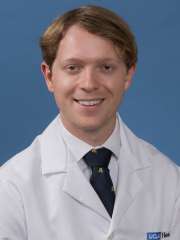
Sebastian Green, MD
UCLA Neurology Chief Resident
[email protected]
Sebastian was born and raised in London, England. Age 18, he attended the University of Bristol for his medical degree before continuing onto University College London (UCL) in 2017 to complete the UK Foundation Programme within the National Health Service. At UCL he began his clinical research career, studying the neuropsychopharmacology of cannabidiol with Dr. Michael Bloomfield, and doing epilepsy research at the National Hospital for Neurology and Neurosurgery, Queen Square. Sebastian carried this academic inquiry onto the University of Oxford, where he completed his master’s degree in neuroscience in 2020 graduating top in his class. Here he wrote two theses; one investigated the longitudinal relationship between cerebral blood flow and cognitive performance with Professor Sana Suri, and the other investigated the role of GABA activity in motor learning with Professor Charlotte Stagg. He then returned to the University of Bristol working with Professor Liz Coulthard to review the utility of sleep-tracking devices in Alzheimer’s disease. He moved to UCLA in 2022 and completed his intern year with the UCLA Department of Internal Medicine. Sebastian has adapted well to California living and spends most of his free time hiking in the Santa Monica mountains, driving his convertible sports car, and learning to surf. He has held onto some of his cultural roots, and still enjoys talking about the weather and playing piano as an Associate of the Royal Schools of Music.

Elaine Ramirez, MD
UCLA Neurology Chief Resident
[email protected]
Elaine was born and raised near Houston, Texas. She attended college at the University of Texas at Dallas where she discovered an interest in neurology while majoring in neuroscience and working in a regenerative neurobiology laboratory. During these four years, she also collaborated with a non-profit based in Washington, D.C. to increase accessibility to cost-effective medication for neglected tropical diseases. Her interest in health inequities and our healthcare system brought her to Austin where she had the opportunity to pursue an MD/MBA at the University of Texas at Austin Dell Medical School and McCombs School of Business. She stayed in Austin another year to complete her preliminary year in internal medicine and be close to family. Having spent her whole life in Texas thus far, Elaine is excited to move to California for her neurology training at UCLA. In her free time, she enjoys spending time with family and friends, trying new restaurants, listening to live music and visiting national parks.
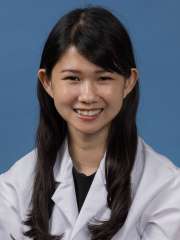
Edith Yuan, MD
UCLA Neurology Chief Resident
[email protected]
Growing up in Taipei, Taiwan, Edith has an innate love for boba (though her favorite drink is passionfruit green tea without boba). She moved to Laguna Niguel, California, when she was 10 years old and discovered the joy of playing the violin. She continued playing throughout college and medical school, where she was a violinist in the Baroque Ensemble and the Los Angeles Doctors Symphony Orchestra, respectively. At UC Berkeley, Edith graduated with honors from the Department of Molecular and Cellular Biology with an emphasis in neurobiology and minored in music. After college, Edith conducted 2 years of research in neuro-oncology under the mentorship of Dr. Anders Persson. She continued her research at USC Keck School of Medicine in Dr. Frank Attenello’s laboratory. During her research year, Edith participated in the American Brain Tumor Association Research Fellowship and was presented the Rubinstein Award. Her projects have focused on investigating the roles of lncRNAs in modulating glioblastoma resistance to temozolomide. In her free time, she loves to explore new restaurants, attend classical music concerts, watch reality TV shows, and go to Disneyland.